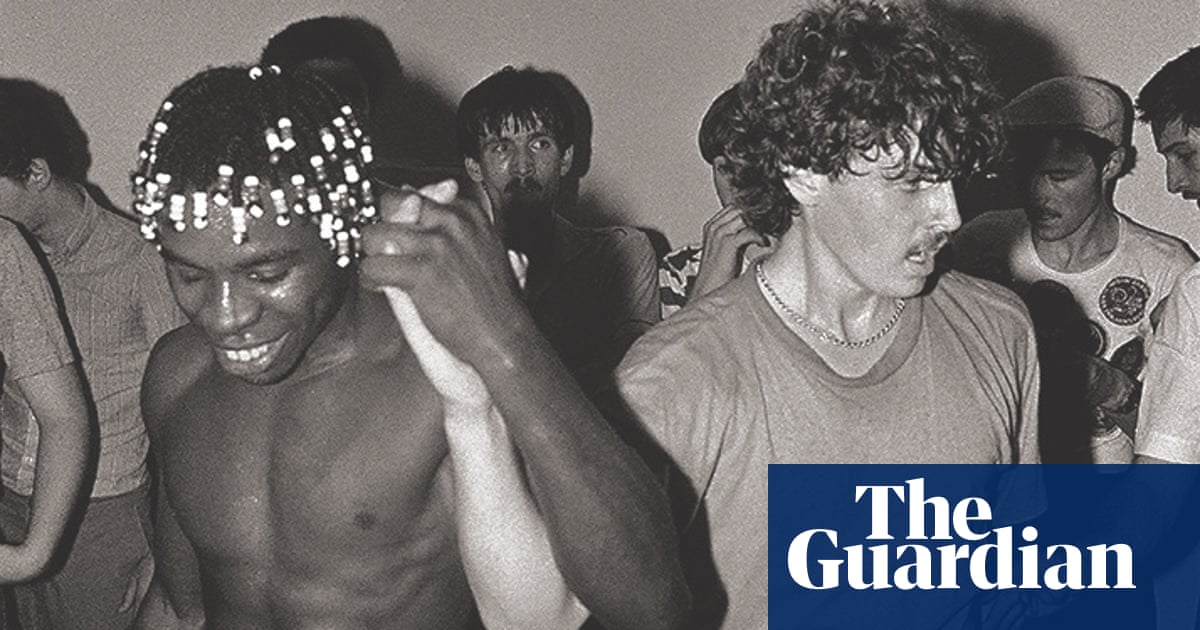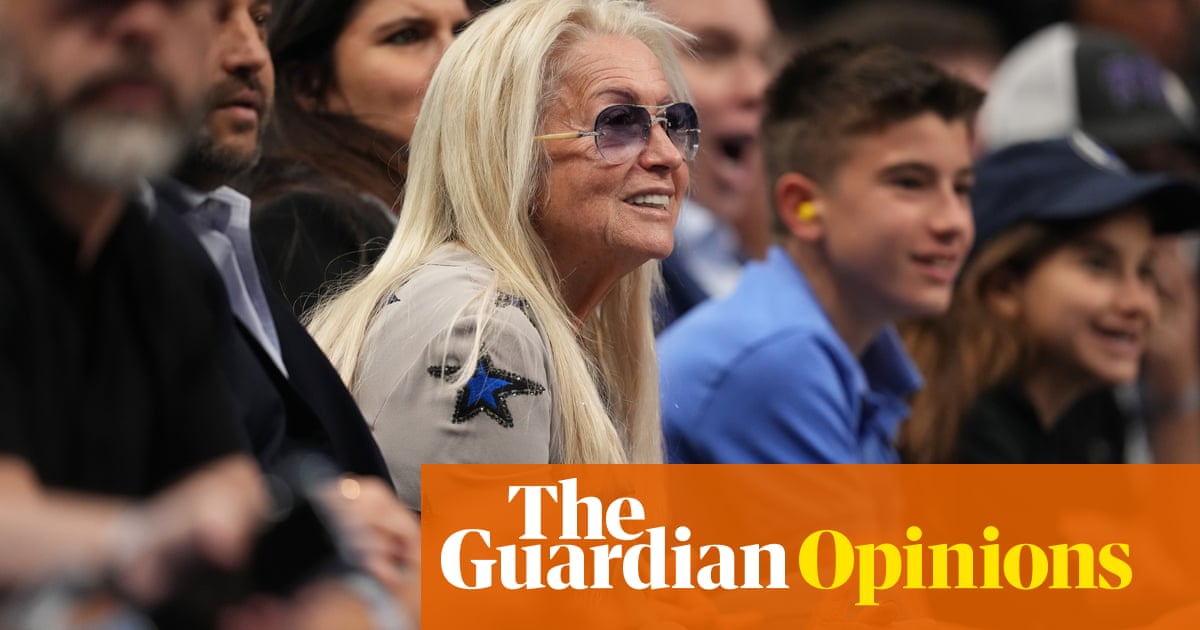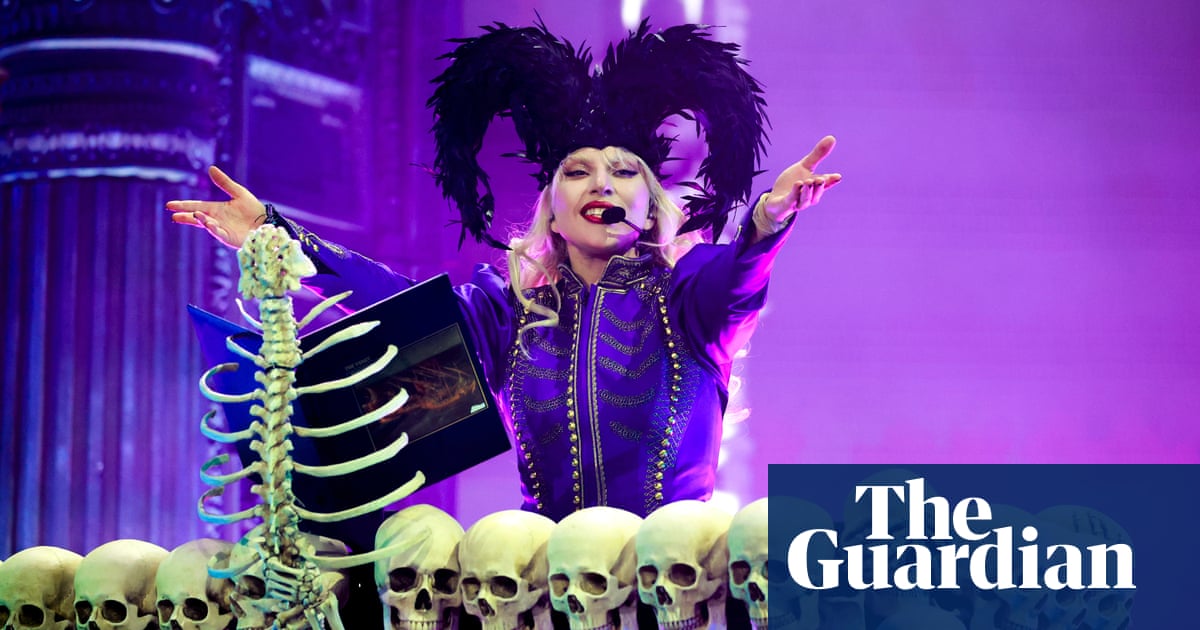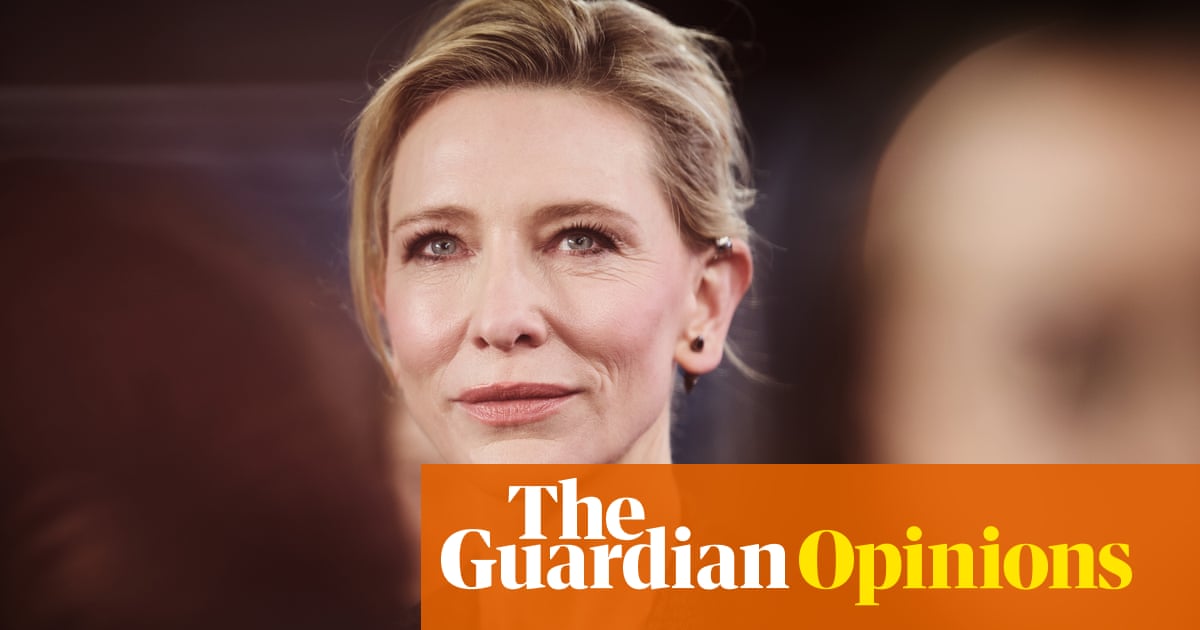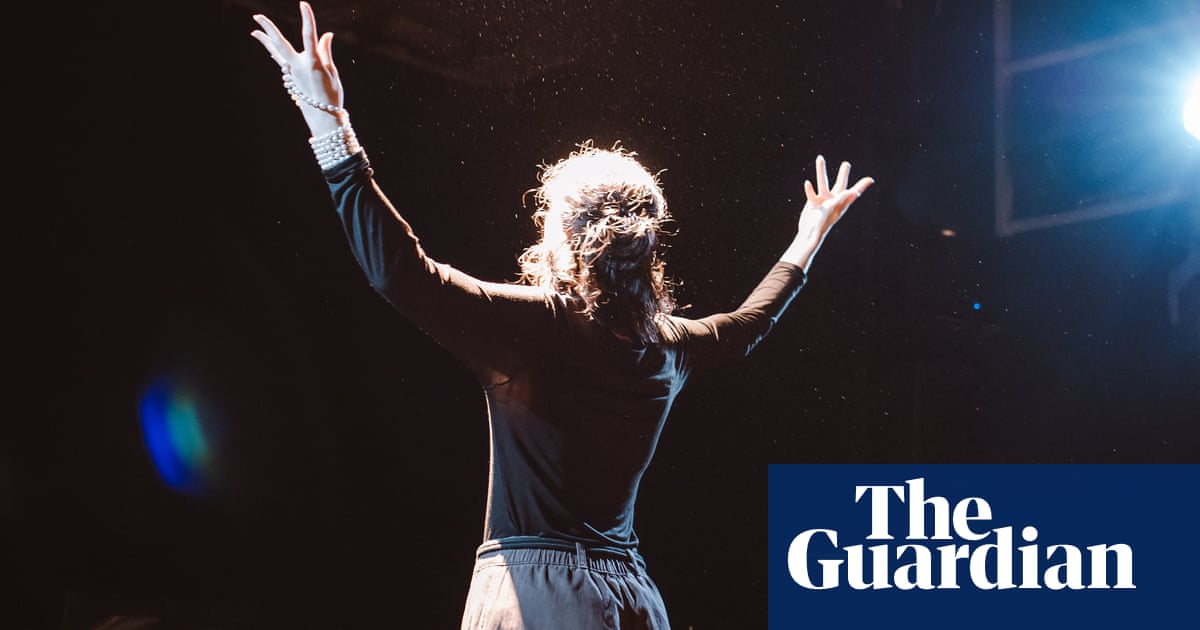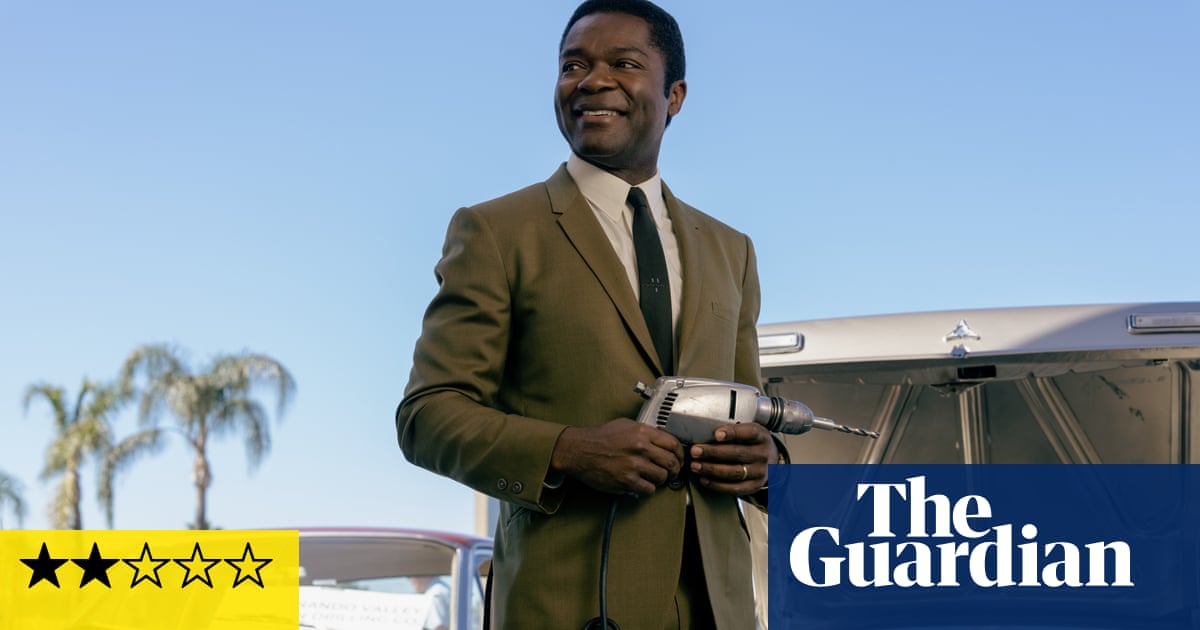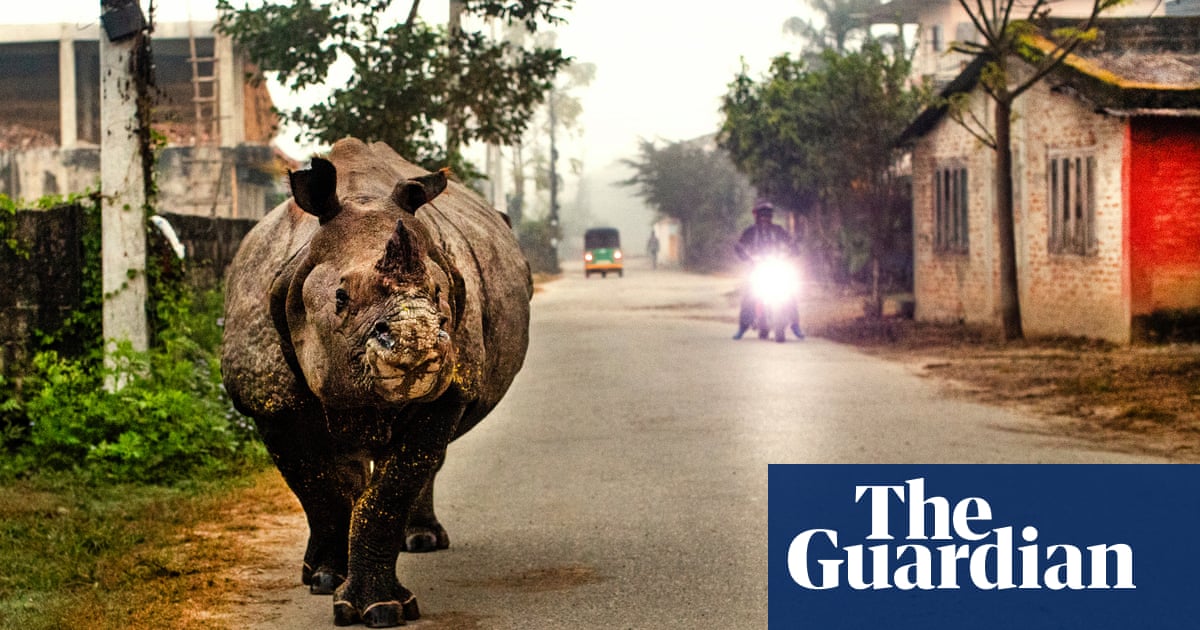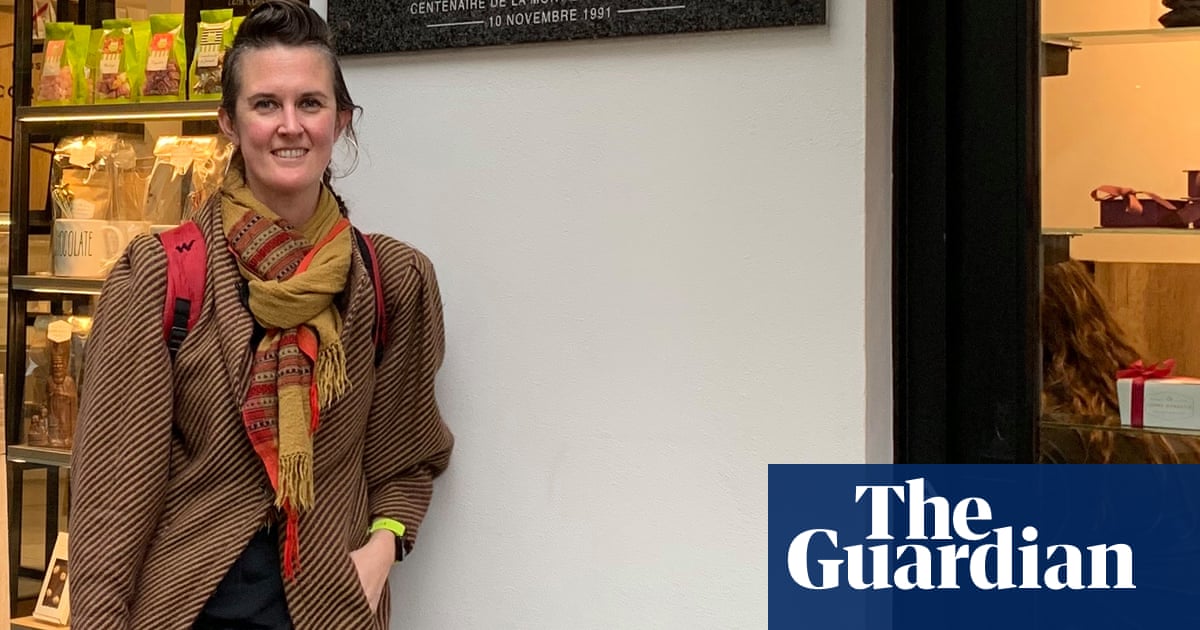Early morning in Penn Badgley’s house has the reassuringly normal noisy chaos that comes with a young family. The actor is in his New York home, preparing to talk about murder and manipulation, while listening out for signs that his wife, who is pregnant with twins, needs help getting their four-year-old son out of the door. She does; he excuses himself, and disappears for a few minutes. If Joe Goldberg, the serial killer Badgley portrays on the hit Netflix series You is controlling, devoid of love and unable to form relationships, Badgley appears to have created a life that looks the opposite.
His time as Goldberg – the role that has been his highest-profile after his big break on another hit series, Gossip Girl – is about to come to an end. The series’ fifth and final season is about to air, and after that, says Badgley with a smile, “I don’t have to speak about Joe Goldberg ever again, if I don’t want to,” before adding: “Of course, I’m sure I will.”
Badgley was 30 when he took the role of Goldberg, the intellectual narcissist and obsessive, who stalks, captures and murders the women he claims to love. He will be 39 this year. “So my 30s have been officially defined by him,” he says. He had only recently married Domino Kirke, a singer and doula, and become stepfather to her son, when You began, then they had another son together around the same time the character became a father. “It’s possible that [Goldberg has] made me a better person because he’s caused a lot of reflection,” says Badgley. It was never meant to be a clinical portrait of a serial killer, he says. “Ultimately, the show is about misconceptions or modern myths about love and about masculinity. I’ve been reflecting on love and what that means, and what it means to be a man and a father and a husband, [while] all these things were starting to happen to me in real life as well.”
It was inevitable, he says, that Goldberg “has been this exercise in understanding all the things I want to avoid”. He laughs and adds: “That’s kind of obvious to say, like, don’t kill, don’t manipulate, don’t be a predator. But what I’ve had to do is try to understand, in some manner, where these things come from. I’ve found similarities, and had to understand how it could have been possible for me to end up that way, rather than the way that I am.”
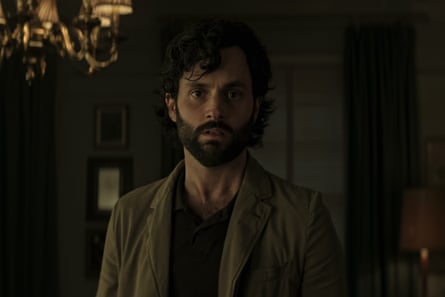
Badgley seems immensely thoughtful and reflective, in a way that sounds horrendously earnest written down. But, in person, over the weird intimacy of Zoom, he has a lightness and a refreshing lack of mock irony. He was a child actor who went on to find huge success with Gossip Girl, the teen drama that ran from 2007 to 2012. His has been an extremely abnormal coming of age, but his interest in the awkward period of transformation that happens in adolescence is one reason he started, and co-hosts, his podcast, Podcrushed, in which celebrities explore their teen years.
In his mid-20s, Badgley was feeling alienated by fame, and unfulfilled by his outward success. It led him to the Baha’í faith, which originated in Iran and parts of the Middle East in the 19th century, and espouses the unity of religions and humanity. “I try to understand the principles I’m living by better, so that I can convert what I’ve been working towards into some kind of service,” he says. “That’s why I’ve tried to deepen the conversations around Joe Goldberg – it’s trying to offer something of meaning. We all have some small part to play, and I’m just trying to convert this part I’ve been given into something that I can make meaningful.”
He knows he’s an actor talking about an overblown Netflix show, but this is where he finds himself, and what if he could make it more? It’s the reason he has spent years talking about male violence, gender equality, and trying to widen his industry’s view on sex scenes. (On his podcast in 2023, Badgley talked about his dislike of sex scenes and said he had asked the You showrunner, Sera Gamble, to reduce the ones he had to do.)
“Sexual violence has been rampant for a long time, there’s inequality between the sexes, there’s a lot of reasons we should be concerned with sexuality and want to explore it far more meaningfully than we have, but a sex scene is not doing that,” he says now. “Usually it’s there to titillate, and to say: ‘Ah, the thing you’ve been waiting to see, it’s finally happening.’” And, even then, he adds: “It’s just not the way sex happens, the falling against the wall and grasping at each other’s clothes, all this stuff. There’s no time for condoms, there’s no time for conversation. There’s no time for awkwardness, for real connection. It’s a narrow and simplistic way that we have done it so far, and I’m just not interested in that.”
In the most recent series of You, Goldberg had moved to London to reinvent himself as an English professor, but developed a new fixation on a woman. If it highlights misogyny, violence and whatever version of masculinity Goldberg is supposed to have, it’s also somewhat schlocky. “It is always ultimately satirical and, wearing the garb of social commentary, it’s never meant to feel utterly real,” he says. “The ways it’s exploring its themes feel truthful and meaningful, but I don’t think the journey there is meant to feel real. We use camp and absurdity in a way that I think saves us and the viewer from, I don’t know, a more grisly exercise.”
In the books by Caroline Kepnes, on which the series is based, Goldberg is far less likable. One of the criticisms the show has faced is that it glamorises stalking and violence against women, and their version of Goldberg – embodied by Badgley, a man who always looks slightly embarrassed by his own beauty – has shades of the romantic hero despite his obvious monstrousness. To make him as unpalatable as he is in the book would have been too much to sustain a TV show, says Badgley, but the ethics of that has, he says, “been my concern throughout the entirety of this series. Has he been too likable? I personally always struggled with that question. I’ve always wanted to make him less likable at every turn that is possible and plausible, and in this moment, I actually don’t know what to say about that.”
Why do we make heroes of evil people? “That’s what I’ve been trying to understand,” says Badgley. “I think we all have to wonder how much value is there in exploring the darker side of human nature. I do think we need to explore the ‘light’ side, and I don’t mean light in a way that is thin or has less gravity.” The show is of its time, he says. “It’s a politically intensifying world, and I don’t think this show would make sense starting right now. It’s ending right now. The way this show plays with questions of how we reward bad people, that was a more playful question eight to 10 years ago. It’s not as playful a question now, and it comes with way more stakes, and I’m glad we’re not going to be playing with it any longer.” He gives a small laugh. “And for that reason, I’m really glad it’s ending.”
He takes a long pause when I ask him about how he feels about the state of US politics. “I think it’s more important than ever to understand how the process of unification actually works, because we’re an incredibly divided, massive population splintering more and more into groups who feel they are competing or opposing each other, and I just don’t see that as sustainable. People want to make a lot of comparisons to the past, but we’ve never actually been here before. I take that seriously, and for that reason, I’m being very measured.” He smiles. “Because I don’t think it’s a time when celebrities have a lot to add, that’s for sure.”
When Badgley was a child – an only child – his family moved to the “middle of nowhere” in Washington state. “I was very isolated for a time.” Getting involved in local theatre gave him the community he craved. When his parents separated, he moved with his mother to Los Angeles. At the age of 12, he started working and never stopped. “I would certainly not recommend it to anybody,” he says of being a child actor in Hollywood. Looking back at the people he grew up and worked with, most, like him, had come from disintegrated families, drawn to Hollywood as “an opportunity to put a pause on the collapsing family dynamic, sort of have this escape, or this fantasy”. And, for the majority of young actors, a successful career is unlikely, so they also have to deal with a sense of failure at a young age. “There’s a lot of ways in which I think it’s objectively negative, in terms of the value system, for a kid to be growing up around.” If you do succeed, as Badgley did, “you’re succeeding despite your own delusions that it would work. It’s a very weird thing.”
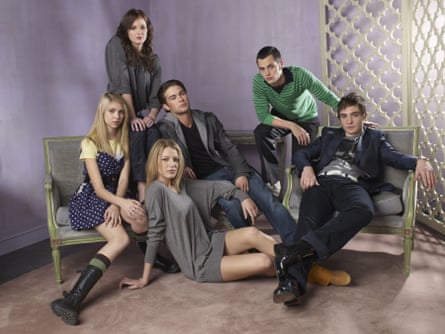
At 20, he was playing the role of Dan Humphrey in Gossip Girl (the shocking twist was that Humphrey, the Brooklyn outsider, was the secret blogger writing about Manhattan’s elite teens; fans have linked the creepy obsessiveness of Humphrey to the psychopathy of Goldberg). Badgley, wary of his loneliness from childhood, found fame isolating and alienating. “Extremely unnatural, just the way that people want to relate to you. It’s not a new idea that fame has all these nefarious dimensions to it. And in order to even appreciate or utilise the privileges that come with it, one has to really grapple with the ways in which it’s completely disabled parts of you or your life, or your relationship to others and society.” He doesn’t expect anyone to feel sorry for him, he says with a laugh, but he points out “the privileges and the sacrifices are both extreme and obscene, and so you have to take them both. In order to be a decent person, a good father and a husband, a good friend, a responsible colleague, I’ve been grappling with all the ways in which this stuff is just not a good way for somebody to live.”
As a child, Badgley experienced what he calls “body dysmorphia” – not diagnosed by any doctor or psychologists, he adds. “I know that I hated my body and simply wanted a different one.” He had put on weight – overeating as a response, he thinks, to his parents’ divorce and social isolation, but idolised the men he watched in films, feeling that he should look like them, although “that just seemed like an impossibility”. Becoming an actor, where what you look like is scrutinised, brought extra pressures. “There was just a period where, coming out of depression and isolation, I was jumping wilfully into, but also being thrust into, this world where the more conventionally beautiful I seemed, the more successful I might be, the more value I might have. There’s no way to get past the superficiality of this work, and if you recognise that, you can’t help but recognise the superficiality of our culture, because of the way it rewards this work.”
With Gossip Girl in particular, a show about rich teens growing up in the Upper East Side: “What was that show other than aesthetic? That was its thing, the way we all looked.” It was huge for Badgley’s career, but, he says: “I didn’t particularly love the superficial celebrity aspect of the way I was perceived.” By his mid-20s, he realised that success, money and celebrity were not going to sustain him.
For a while, he had considered leaving acting. Instead, he sought spirituality – and the Baha’í faith. “That is what allowed me to persevere through the disillusionment, all the things I’d been grappling with, and then come back to it all, but with hopefully some kind of inner transformation.” He says he prays and meditates every day, which has helped him maintain his sanity, along with “the simple stuff of life, like having a family, meaningful relationships with my friends”.
Approaching his 40s, with twins on the way, as well as a book in the autumn (and a production company whose projects so far will not feature him as an actor), Badgley seems more than ready to purge himself of Goldberg. Filming the final scenes at about 2am, Badgley found it was something of an expulsion. Over the years, he has felt Goldberg’s rage in his body, particularly in the muscles of his neck. On that night shoot, he found he couldn’t perform, and had a strange feeling of having to cough or vomit up the words. “It was as though I couldn’t sustain the rage any more, couldn’t sustain the levels of artifice with him, just all of it.” He can’t say what happens to Goldberg, if there is justice even. Is it good enough (bad enough)? “Nothing is really good enough. There’s levels to it; it’s not just like: does he die? Does he go to jail? Is he tortured? Does he live and is he miserable alone? It’s really about how we get there.” He thinks, he says, that “we reached truly the best resolution for him”. And there, I think Badgley feels, he should stay.
-
The final season of You premieres on Netflix on 24 April

.png) 5 hours ago
2
5 hours ago
2



